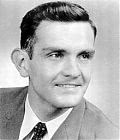"I told them to be brave"
How One Family Made Sense Of Its Past
Originally published in The Guardian
 One day in November, Norman Morrison left home with his baby daughter Emily, drove 40 miles to Washington DC, and just yards from the Pentagon, poured kerosene over himself before striking a match.
One day in November, Norman Morrison left home with his baby daughter Emily, drove 40 miles to Washington DC, and just yards from the Pentagon, poured kerosene over himself before striking a match.
The flames shot more than 10 feet into the air.
Coming home after collecting their two older children from school, his wife, Anne, had no idea what Norman, 31, had done.
But as night fell, she wondered where he had taken Emily.
Then the phone rang. It was a journalist…
…who, quickly realising she had no idea what had happened, suggested that Anne phone the hospital.
She did, and was told that Norman had been badly burned.
“Intuitively, I knew he hadn’t survived,” she told me.
Her baby had not been harmed, the hospital staff assured her.
She asked friends to look after Ben, six, and Christina, five, and others to drive her to Washington.
At the hospital, Anne collected Emily, who seemed fine, and Norman’s possessions:
wallet,
comb,
wedding ring and
a Harris tweed jacket he had bought in Scotland after they married.

For the media outside, she wrote a statement: Norman had given his life to express his concern about the loss of life and suffering caused by America’s military intervention in Vietnam.
Norman and Anne had grown up Presbyterian and Methodist, respectively, but become Quakers.
As pacifists, they had put great effort into ending the war: praying, protesting, lobbying, withholding war taxes, writing letters to newspapers and people in power.
But if Anne had known of Norman’s plans, she would have done anything to stop him, she says.
The next morning, at home, she had to break the news to Ben and Christina.
“I honestly did not know what I was going to say. I just prayed all the way up the steps and asked for help. I prayed for help and told them that, uh…”
“ remembering, even 45 years later, Anne’s voice breaks and she starts to sob gently as she continues “
“I told them their dad had died because children were suffering in a country far away and he died to help them and to stop the war that was causing them such pain and suffering.”
Many people, hearing this, find it impossible to understand what Norman did. It must have been harder still for his young children.